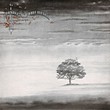|
|

From head to heart Following our retroscope series going on for several years, here we go again. Yes, for one more year! Here's Speakers' corner's cousin; From head to heart. Luna Kafé's focused eye on great events, fantastic happenings, absolute milestones, or other curious incidents from the historic shelves'n'vaults of pop'n'rock. Blowing our ears and our head, punching our chest and shaking our heart, or simply tapping our shoulder. Making us go sentimental, but not slaphappy. This moonth we'll revisit a 40-year-old. A ghost from the 1970s. Gabriel was long since gone (well, at least a year before), and the drummer had stepped up to the front. They were still four-headed, and this was their second album that year. Two albums in less than a year! Maybe not the common thing back in the 70s, before punk broke. Well, Bowie did the same think the year after (with 1977's Low and Heroes). wind[noun wind, Literary wahynd; verb wind] noun 1. air in natural motion, as that moving horizontally at any velocity along the earth's surface: A gentle wind blew through the valley. High winds were forecast. 2. a gale; storm; hurricane. 3. any stream of air, as that produced by a bellows or fan. 4. air that is blown or forced to produce a musical sound in singing or playing an instrument. 5. wind instrument. 6. wind instruments collectively. 7. the winds, the members of an orchestra or band who play the wind instruments. ... verb 20. to expose to wind or air. 21. to follow by the scent. 22. to make short of wind or breath, as by vigorous exercise. 23. to let recover breath, as by resting after exertion. to catch the scent or odor of game. ... wuther [wuhth -er] verb (used without object), British Dialect. 1. (of wind) to blow fiercely. Origin of wuther: 1846; variant of dial. and Scots whither, Middle English (Scots) quhediren; compare Old Norse hvitha squall of wind.
Dark and grey, an English film, the Wednesday Play There is a tendency towards categorizing the music of Genesis into before and after Peter Gabriel left. The band with Gabriel as the front man, was among the leading first wave proto progressive and symphonic rock bands. After his departure, the remaining continued as a pop band, one of the most commercially successful in the 1980s. Well, there was an intermediate period. My favourite Genesis era is the one before guitarist Steve Hackett left the band in 1977. Somehow the two studio albums the post-Gabriel quartet released before Steve abandoned ship, A Trick of The Tail (February 1976) and Wind & Wuthering (December 1976), seem to be forgotten, to some extent. They surely belong to the progressive and symphonic era along with most of ...And Then There Were Three... (1978) before the pop band was fully revealed on Duke (1980), the favourite Genesis album of the main character of American Psycho and his ilk... The outlook's fine though Wales might have some rain Saved again. I guess I discovered Genesis for real in 1975 around the time Peter Gabriel left. A year and a half later I was eagerly awaiting the new album and wasn't disappointed. 40 years later I'm not that sure. Wind & Wuthering starts with two long epic tracks that moves between loud and quiet parts, time signature changes and instrumental passages as your vintage song by progressive Genesis ought to. But the band has left the fantasy themes of earlier albums. The opening track "Eleventh Earl Of Mar" describes an unsuccessful Scottish revolt 300 years ago. There are some tendencies towards pompousness and some of the synthesizer sounds that probably were very modern 40 years ago, seem outdated now. But I still have a soft spot for this song. It's the only one I've heard performed live twice by Genesis. It opened my one and only close encounter with the band, in June 1978, on the ...And Then There Were Three... tour. Being the first time in Oslo to go to a concert, we arrived outside the arena some hours before show-start and heard it played inside during the sound-check early in the afternoon as well. The Arabs and the Jews boy (too much for me) They get me confused boy (puts me off to sleep) And the thing I hate - Oh Lord! Is staying up late, to watch some debate, on some nation's fate. The band fare better when they stick to the old piano, organ and Mellotron formula, or to synth sounds similar to the latter two like in the second epic track, the piano based "One For The Vine". It ranges from the simple minimalistic to the symphonic majestic and deals with the dilemmas and torments of war some hundred years ago. With a close to religious vision towards the end. Although written by keyboardist Tony Banks, it includes some mighty guitar work as well. All in all Steve Hackett's guitar efforts are superb throughout the album, except the only real low point, "Your Own Special Way". It's a simple guitar based love song by bassist Mike Rutherford. A shorter version of the song was released as a single and even made it to the top hundred on the lists in the USA. It announced the beginning of the end of Genesis as we knew back then, to be continued with the pop oriented EP Spot The Pigeon the following spring and the dreadful "Follow You, Follow Me" on ...And Then There Were Three... in 1978 before the complete transformation into the pop format two years further down the road. You've won the West in time to be our guest Name your prize! The remaining tracks of the album, however, are pure pleasure. "Wot Gorilla?" is a short and funny melodic jazz-rock, sort of, instrumental based on a part from "One For The Vine", though that's hard to discern. Drummer and vocalist Phil Collins was a quite young man and workaholic back in the second half of the 1970s, who had a hobby-band, sort of, the jazz-rock combo Brand-X going in parallel with Genesis. "Wot Gorilla?" is the only Genesis track in this direction, though it probably sounds closer to Weather Report than Brand-X. Let's flip the original LP. Side 2 starts with "All In A Mouse's Night", an exception lyric-wise, back to the humoristic stories from the days when Peter Gabriel was the main lyricist of the band. It tells about the mouse's night from the point of view of both the mouse, the cat and the loving couple living in the house, with a surprising end. A bit on the pompous side with mighty keyboards now and again, but it doesn't last for long at a time. The grime on Tyne is mine all mine all mine Five past nine. "Blood On The Rooftops" was originally written as a love song, but Steve Hackett re-wrote the lyrics, included above and below here, to avoid too many love songs on the album. Instead it's about watching too much TV news. A beautiful song with a classic guitar intro that reminds a bit of Steve's short "Horizons" that preceded the Genesis epic above all Genesis epics "Supper's Ready" on Foxtrot four years earlier. Here's also some moody quiet and mighty floating keyboards including Mellotron along with the acoustic guitar. Despite the lyrics being written to be cynical and the mentioning of international affairs and oversea cities, I think there are something very English about them. One of the best Genesis songs there is. It also reminds that Genesis used to be an arch-English and occasionally quirky band. After the Nine O'Clock News, we move effortlessly into the more dreamy terrain in the instrumental "Unquiet Slumbers For The Sleepers...". It's neither melancholic, nor merry, just beautiful. Acoustic guitar interweaved by a light synthesizer, light like a feather blown away by the wind. Another highlight. In the following instrumental "...In That Quiet Earth", the volume is turned up substantially. Steve Hackett picks up the electric guitar and delivers a blistering solo, followed by moody backwards guitar, synth and guitar entwined before the synth takes over the show. And when the synth is about to grow too pompous, a heavy guitar interrupts for a little while. The two titles were taken from the last sentence of Emily Brontë's famous 19th century novel Wuthering Heights: 'I lingered round them, under that benign sky: watched the moths fluttering among the heath and harebells, listened to the soft wind breathing through the grass, and wondered how any one could ever imagine unquiet slumbers for the sleepers in that quiet earth.' Half the album title was taken from the title of the novel. Mind, this was more than a year prior to the release of Kate Bush's debut single "Wuthering Heights". Streets of San Francisco - a word from Peking The trouble was started - by a young Errol Flynn Better in my day - Oh Lord! For when we got bored, we'd have a world war, happy but poor Last we're in for a second love song, the melancholic guitar and organ driven hymn-alike "Afterglow". It works a lot better than "Your Own Special Way" even though this one, too, threatens to grow too pompous now and again. The song used to be a recurring issue in the Genesis live shows that followed the release of Wind & Wuthering. It was in the set list when I attended the Genesis concert in 1978. Back then I thought it was a mind-blowing show. It wasn't until a couple of years later I realized it had been too late to witness the real progressive band. Steve Hackett had followed Peter Gabriel and gone solo before the recording of ...And Then There Were Three... started. That album was a last desperate attempt to keep the vessel going in the same direction as earlier, but it lacked at least one dimension, the subtleties much due to Hackett's guitar work. Blood on the rooftops (too much for me) When old Mother Goose stops - they're out for 23 Then the rain at Lords stopped play Seems Helen of Troy has found a new face again. Wind & Wuthering is not the best Genesis album of the progressive era and not my favourite album by the band. But side 2 of the LP includes some of the most moody and spine-chilling, mainly instrumental, parts the band ever recorded in the 1970s. Steve Hackett left because he thought the band included too few of his compositions. But he was definitely involved in the writing of the highlights of the album, "Blood On The Rooftops", "Unquiet Slumbers For The Sleepers..." and "...In That Quiet Earth". In recent years Steve has managed to quench much of the thirst/nostalgia for vintage Genesis around the world with his Genesis Revisited shows and albums. The three mentioned tracks are often included in his set list. They, but also the majority of the remaining tracks, makes it worthwhile to give Wind & Wuthering a first and a second chance. Copyright © 2016 JP
|
| You may also want to check out our Genesis article/review: Foxtrot. |
| © 2016 Luna Kafé |
 Genesis
Genesis